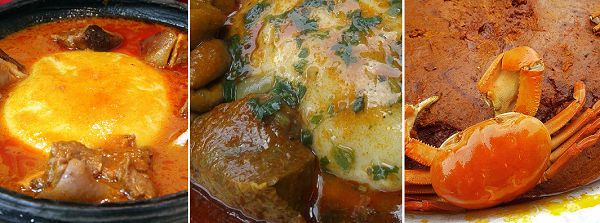
Mourning with food - The need for moderation
Most of us Ghanaians grew up to see death as one of the devastating occurrences in life. The death of anybody, no matter how close or distant, was felt by the entire community.
Funerals were an occasion to mourn the departed. It was a somber and solemn occasion and was always observed as such.
Funerals were devoid of heavy meals, and for the immediate family, the cooking pots could go cold for days. In fact, the eating of heavy meals such as fufu, tz, omutuo, konkonte, ampesi, etc. were unheard of.
When I lost my grandpa as a child, the pots were left cold for three days. Neighbours brought over small quantities of foods for our upkeep and I saw my mum and aunties do same when a neighbour was bereaved. It was one of the traditions which bred good neighbourliness.
In recent times, and maybe in line with our own kind of modernisation which has tilted more towards the nuclear family set up and the situation where many don’t know who lives next door, this tradition seems to have given way to something else, and feasting at funerals now seems to be the order of the day.
It is often a buffet, fufu with different ‘colours’ of soups, tuo zafi, ampesi, jollof, banku, assorted meats and many more. These foods are usually accompanied by strong assorted alcoholic beverages.

Fufu, tuo zafi and aprapransa
Of course, as in all manner of things, the nature of the meals is also meant to make a statement about how resourceful the family is. Forget it even if some school fees are outstanding and the deceased struggled to meet his or her hospital bills.
Two schools of thoughts have emerged on whether to overly fete mourners at funerals. The argument is that people who are mourning are already saddled with certain costs and the least friends could do is to add up to the cost.
Again, it erodes the solemnity of the occasion. Imagine coming to ‘confront’ fufu and abenkwan (palm-nut soup immediately after interment).
The other side of the argument is that in most cases, they will merely be paying back for similar services they have enjoyed in times past. People would have also travelled to areas they are not familiar with, and in some cases access to decent meals could be a challenge, so leaving them to fend for themselves would be “unprotocol”.
The bottom line is that such elaborate meals go a long way to add up to the cost of organising an otherwise simple ceremony of seeing off a departed relative.

Ampesi and Jollof and Banku
The bereaved family must be free from encumbrances such as serving food and drinks and concentrate on mourning their dead.
At a recent funeral somewhere in the middle belt, a colleague jokingly remarked that we were at a food conference rather than a funeral. This deprives mourners of the often self-inflections associated with such occasions that should shape the conduct of the living.
No wonder that after such encounters, the conversation is shifted to mundane commentary such as the fufu was hard, the aprapransa was salty, ah na aduani no koraa enye d3, Jollof no asi ashi, literally meaning “under the jollof got burnt”.
In all this, the only beneficiaries appear to be those in the culinary business and some family members. At a recent family funeral, I realised I had been short changed when my cousin, who volunteered to handle food matters, disappeared when the meals could not cater for 300 mourners though his budget covered 500. He also took additional money for what he claimed was for bushmeat and snail soup. I am yet to see that soup.
It is a fact that life is dynamic and evolves. It may not be practicable to do things the same way as our forefathers did, but in accepting modernity, we must not kill the very foundations of our traditional events which make us Ghanaians.
Funerals are solemn occasions meant to see off our departed relatives and friends in an atmosphere that affords us the opportunity to reflect on our own lives.
I still maintain that a decent balance is what is required. Relegating funerals to a food bazaar is a bit over the top, even if we have the resources.
Writer’s E-mail:
